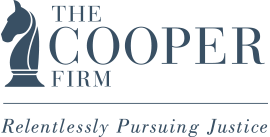About Us
Premises Liability Claims
One of the responsibilities of owning property is a duty to keep it reasonably safe for those allowed onto the property. The extent of this "duty of care" is different for owners of private property and owners of commercial property (premises open to the public for business or other purposes).
To successfully recover damages on a premises liability claim, an injured person must prove:
- The owner of the property owed them a duty of care.
- The owner failed to live up to their duty of care.
- That failure caused a person's injuries.
- The injuries resulted in actual (quantifiable) damages.
These cases usually involve disputes about whether a property owner had a duty of care to the injured person and, if so, whether they breached their duty. Property owners have different responsibilities depending on which of the following categories describes their visitor:
- A "licensee" is allowed on the property for personal or social purposes, like a dinner guest or visiting relative.
- An "invitee" is permitted onto your property for business purposes, like clients, customers, delivery personnel, mail carriers, patrons, patients, or other business associates.
- A "trespasser" enters the property without the owner's permission. A property owner does not have to protect trespassers, but they are not allowed to take steps likely to cause them harm (like setting booby traps) and must post warnings about any special dangers on the property (such as a vicious animal).
In Georgia, premises liability duties also extend to "occupants" of property. This means individuals who are injured on property owned by one company but leased to and occupied by a different individual or organization may be able to pursue claims against both the owner and occupier.
Responsibilities of Residential and Other Private Property Owners and Occupiers
Owners and occupiers of private property in Georgia are not responsible for ensuring the safety of everyone who comes onto their land. However, they are required to take reasonable measures and use reasonable care to maintain their property for their invited guests (confusingly called licensees) and other people who are lawfully on their premises (invitees).
If they know or should reasonably know of dangerous conditions, an owner or occupier must try to fix them. If they cannot eliminate the danger, they must provide an appropriate warning. Failing to warn guests of potential danger can be cause for liability.
For example, a property owner has a large pond on their private land that attracts local wildlife, including alligators. Although they have taken steps to remove and deter the animals, they are aware of the potential hazard. They should post a clearly visible sign notifying visitors of the possible danger and warning against entering the water.
An owner or occupier of a non-commercial property will be judged against what a reasonably prudent person in their situation would have done to prevent harm to others. If a judge or jury finds that a reasonable person would have done more to ensure the safety of their visitors, an injured person may succeed on their claims.
Responsibilities of Commercial Property Owners and Occupiers
The responsibility of commercial owners and tenants to protect their visitors is much higher than private property owners. Like non-commercial owners, they must take reasonable measures to protect the public from hazards they have actual or constructive knowledge about. Additionally, they must make reasonable inspections of their property to discover any hazards or dangerous conditions. If they learn of a hazard on their property, they must take reasonable actions to fix the condition within a reasonable time period.
The frequency and extent of what counts as "reasonable inspections" depend on the situation but is what a reasonably prudent person would consider appropriate. Even if a property owner or occupier did not have actual knowledge of a hazardous condition, they may be held liable for injuries caused by the condition if a reasonable inspection would have made them aware of the situation.
For example, a business owner would probably be held responsible if a customer falls in a sinkhole that developed at the edge of their parking lot three business days prior. Liability would be less clear if the sinkhole arose earlier that day, and the lot had been consistently full of cars obscuring the hazard.
Owners and commercial occupants of business premises have a duty to keep parking lots, walkways, and adjacent sidewalks in good condition and free from hazardous debris. In fact, they are responsible for maintaining all areas the public might reasonably be expected to enter, even if they are "out of bounds."
For example, a customer injured by falling down a poorly maintained stairway marked "employees only" may still have a claim against a business and property owner if the victim successfully claims that the door to the stairway was easily mistaken for the entrance to the restroom.
Pursuing a Premises Liability Claim
Contact The Cooper Firm today if you have been injured on someone's property due to a dangerous condition. Our team of experienced premises liability attorneys can help evaluate your case and determine the best course of action to recover what you deserve.


